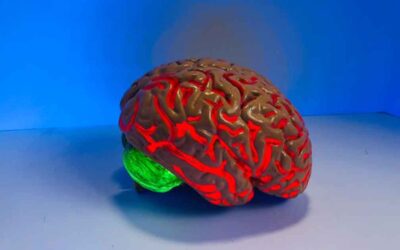Is the belief in the Day of Judgment based on reason and wisdom?
The fact is that what
ever Prophet Muhammad (blessings of Allah and peace are upon him and his family) has conveyed us about this Final Day and life after death is clearly based on wisdom. A comparative study on other viewpoints about life after death and a conclusion based on wisdom not only confirms this belief but also reveals that Prophet Muhammad’s (blessings of Allah and peace are upon him and his family) teachings in this respect are much more reasonable and understandable.
The following three viewpoints are currently more prevalent about life after death:
- Some people say that there is nothing left of man after death, and that after this life-ending event there is no other life. The man becomes just history after death! According to these people, belief in life after death has no reality. They say it is scientifically impossible. This is the view of the atheists who also claim to be scientific in their approach and bring in Western science to support their arguments.
- Other people maintain that man, in order to bear the consequences of his deeds, is repeatedly regenerated in this world. If he lives a bad life, he will assume in the next generation the shape of some animal, such as a dog or a cat, or some tree or some lower kind of man. If his acts have been good, he will be reborn as a man into a higher class. This viewpoint is found in some Eastern religions.
- There is a third viewpoint which calls for belief in the Day of Judgment, the Resurrection, man’s presence in the Divine Court, and the meting out of reward and punishment. This is the common belief of all the Prophets.
Now let us consider these viewpoints one by one.
The first group, which assumes the support of scientific argument, claims that there is no life after death. They say that they have never seen anybody coming back from the dead. After death a man is reduced to dust; therefore, death is the end of life and there is no life after death.
Considering this reasoning, is this really a scientific argument? Is the claim really founded on reason? If they have not seen a single case of revival after death, they can only say that they do not know what will happen after death. But, instead of remaining within this limit, they declare that nothing will happen after death, at the same time alleging that they speak out of knowledge!
In fact, they merely generalize on ignorance. Science tells us nothing — negative or positive — in this respect and their assertion that life after death has no existence is totally unfounded. Their claim is not dissimilar to the claim of an ignorant who has not seen an airplane and on that ‘knowledge’ proclaims that airplanes do not exist at all! Because somebody has not seen a thing, it does not mean that that thing does not exist. No man, not even the whole of humanity, if it has not seen a thing, can claim that such a thing does not, or cannot, exist. This claim is not based on scientific method. No reasonable man can give it any weight.
Now look at the beliefs of the second group. According to them, a human being is a human being because in his previous animal form he had done good deeds; and an animal is an animal because previously as a human being he had behaved badly. In other words, to be a man or an animal is the consequence of one’s deeds in one’s former form.
One may well ask “Which of them existed first, man or animal?” If they say man preceded animal, then they will have to accept that he must have been an animal before that, and was given a human form for its good deeds. If they say it was animal, they will have to concede that there must have been a man before that who was transformed into an animal for his bad deeds. This leads to a vicious circle; the advocates of this belief cannot settle on any form for the first creature, for every generation implies a preceding generation so that the succeeding generation may be considered as the consequence of the former. This is simply absurd.
Now consider the third viewpoint. Its first proposition is: that “this world will one day come to an end. God will destroy and annihilate the universe, and in its place will evolve another higher and far superior cosmos.”
This statement is undeniably true. No doubt can be cast on it. The more we reflect on the nature of the cosmos, the more clearly it is proved that the existing system is not permanent and everlasting: all the forces working in it are limited in their nature, and will one day be exhausted. That is why the scientists agree that one day the sun will become cold and will give up all its energy, stars will collide with one another and the whole system of the universe will be upset and destroyed.
Moreover, if evolution is true in the case of the constituents of this universe, why may it not be true for the whole of it? To think of the universe becoming totally non-existent is less likely than that it will pass into another evolutionary stage, and another, much-improved order of things will emerge.
The second proposition of this belief is that “man will again be given life”. Is it impossible? If so, how did the present life of man become possible? It is evident that God Who created man in this world can do so in the next. Not only is it a possibility, it is also a positive necessity, as will be shown later.
The third proposition is that “the record of all the actions of man in this world is preserved and will be presented on the Day of Resurrection”. The truth of this proposition is provided today by science itself. The sounds, which we make, produce slight waves in the air and die out. It has been discovered that the sound leaves its impression on its surrounding objects and can be reproduced.
Gramophone records are made on this principle. From this it can be understood that the record of every movement of man is being impressed on everything, which comes into contact with the waves produced by the movements. This shows that the record of all our deeds is completely preserved and can be reproduced.
The fourth proposition is that “on the Day of Resurrection. God will hold His Court and, with just judgment, reward or punish man for his good and bad deeds”. What is unreasonable about this? Reason itself demands that God should hold His court and pronounce judgment. We see men doing good deeds and gaining nothing in this world. We see other men doing bad deeds and not suffering for it. Not only this, we see thousands of cases of good acts bringing trouble on the doer, and of bad deeds resulting in the happiness and gratification of the guilty person.
Noting these events happening every day, our reason and sense of justice demand that everyone should be brought to justice. A time must come when the man who does good must be rewarded and the one who does evil must be punished.
If you have a can of petrol and a match- box, you can set fire to the house of your opponent, and apparently escape every consequence. Does this mean that such an offence has no consequences at all? Certainly not! It means only that its physical outcome has appeared, and the moral outcome is hidden and yet to come. Do you really think it reasonable that it should never appear? If you say it should, the question is, where? Certainly not in this world, where only the physical consequences of actions manifest themselves fully, and rational and moral consequences do not become apparent.
Results and consequences of this higher category can appear only if there comes into existence another order of things wherein rational and moral laws reign supreme and occupy the governing position and where the physical laws are made subject to them. That is the next world, which, as we have said before, is the next evolutionary stage of the universe.
It is evolutionary in the sense that it will be governed by moral rather than by physical laws. The rational consequences of man’s actions, which are hidden wholly or partly in this world, will then appear. Man’s stature will be determined by his rational and moral worth judged in accordance with his conduct in this life of test and trial. There you will not find a worthy man serving under a fool or a morally superior man in a position inferior to a wretch, as is often the case in this world.
The last proposition of this belief is the existence of Paradise and Hell, which is also not impossible. If God can make the sun, the moon, the stars and the earth, why should He not be able to make Paradise and Hell? When He holds His Court, and pronounces just judgments, rewarding the noble and punishing the guilty, there must be a place where the noble may enjoy their reward — honor, happiness and gratification of all kinds — and another place where the condemned may feel debasement, pain and misery.
After considering all these questions, no reasonable person can escape the conclusion that belief in life after death is highly acceptable to reason and commonsense, and that there is nothing in it, which can be said to be unreasonable or impossible. Moreover, when a true Prophet like Muhammad (blessings of Allah and peace be upon him and his family) has stated this to be a fact, and it involves nothing but what is good for us, wisdom guides us believing in it without any doubt.
______________________________________________________________________________
References
The following sources are used to prepare the above article.
- Abul Ala Mawdudi, Towards Understanding Islam (1963), Publisher: Islamic Publications





0 Comments